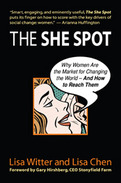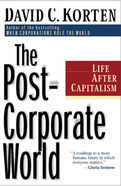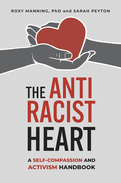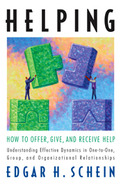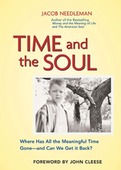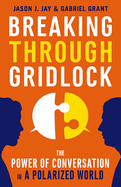2008
Capitalism is a pathology that commonly afflicts market economies in the absence of vigilant public oversight. Since the economy internal to a corporation is a planned economy, the current consolidation of economic control under a handful of global corporations is a victory for central planning-not the market economy. The alternative to the new global capitalism is a global system of thriving, healthy market economies that function as extensions of healthy local ecosystems to meet the livelihood needs of people and communities.
Radical as such proposals may seem, they actually reflect processes that are steadily gaining momentum around the world. The Post-Corporate World provides a vision of what's needed and what's possible, as well as a detailed agenda for change. Korten shows that to have a just, sustainable and compassionate society, concentrated absentee ownership and footloose speculative capital as embodied in the global, for-profit public corporation must be eliminated in favor of enterprises based on patient, rooted, stakeholder ownership limited to those who have a stake in the firm as a worker, supplier, customer, or member of the community in which it is located.
Korten outlines numerous specific actions to free the creative powers of individuals and societies through the realization of real democracy, the local rooting of capital through stakeholder ownership, and a restructuring of the rules of commerce to create "mindful market" economies that combine market principles with a culture that nurtures social bonding and responsibility.
Like Korten's previous bestseller, When Corporations Rule the World, this provocative book is sure to stimulate national dialogue and debate and inspire a bevy of grassroots discussions and initiatives. The Post-Corporate World presents readers with a profound challenge and an empowering sense of hope.
• From the bestselling author of When Corporations Rule the World
• An extensively researched, powerfully argued, eye-opening critique of how today's corporate captialism is destroying the things of real value in the world-like cancer destroys life
• Portrays a hopeful future-alternatives to a corporate-dominated and money-ruled world-in showing how to resore health to markets, democracy, and every day life
• Offers practical suggestions for individuals who want to contribute to the process of change
• Co-published with Kumarian Press
There is a deep chasm between the promises of the new global capitalism and the reality of social breakdown, spiritual emptiness, and environmental destruction it is leaving in its wake. In this important book, David Korten makes a compelling and well-documented case that capitalism is actually delivering a fatal blow not only to life, but also to democracy and the market. Among his startling ideas:
Capitalism is a pathology that commonly afflicts market economies in the absence of vigilant public oversight. Since the economy internal to a corporation is a planned economy, the current consolidation of economic control under a handful of global corporations is a victory for central planning-not the market economy. The alternative to the new global capitalism is a global system of thriving, healthy market economies that function as extensions of healthy local ecosystems to meet the livelihood needs of people and communities.
Radical as such proposals may seem, they actually reflect processes that are steadily gaining momentum around the world. The Post-Corporate World provides a vision of what's needed and what's possible, as well as a detailed agenda for change. Korten shows that to have a just, sustainable and compassionate society, concentrated absentee ownership and footloose speculative capital as embodied in the global, for-profit public corporation must be eliminated in favor of enterprises based on patient, rooted, stakeholder ownership limited to those who have a stake in the firm as a worker, supplier, customer, or member of the community in which it is located.
Korten outlines numerous specific actions to free the creative powers of individuals and societies through the realization of real democracy, the local rooting of capital through stakeholder ownership, and a restructuring of the rules of commerce to create "mindful market" economies that combine market principles with a culture that nurtures social bonding and responsibility.
Like Korten's previous bestseller, When Corporations Rule the World, this provocative book is sure to stimulate national dialogue and debate and inspire a bevy of grassroots discussions and initiatives. The Post-Corporate World presents readers with a profound challenge and an empowering sense of hope.
2023
Have you wanted to stand up for the values you believe in, yet found yourself inexplicably held back? Do you long for a way to hold people accountable that doesn't simultaneously demean them? The Antiracist Heart combines cutting-edge neuroscience with ways to build Martin Luther King Jr's vision of Beloved Community, delivering practical tools for the internal and interpersonal work of antiracism. This book prepares the reader to have a new kind of conversation when racist harms occur one that doesn't shy away from hard truths yet doesn't demonize anyone.
Based on the framework of How to Have Antiracist Conversations, the activities in this handbook empower readers to disrupt the ways racism plays out in daily life. In each chapter, Manning, a clinical psychologist and antiracist activist, and Peyton, a neuroscience expert and educator, both trainers in Nonviolent Communication, unpack key concepts like bias and trauma using brain science alongside practices for self-connection and dialogue.
The exercises are:
- Flexible
- Designed to work for individuals or groups
- For people of the Global Majority (BIPOC) or white people
- For those with or without experience in addressing the effects of racism
By better understanding the neuroscience of how brains develop in response to culture, readers gain skills to interrupt implicit biases and racist constructs deep within the brain. The activities invite introspection and a radical form of self-compassion that make antiracist dialogues and actions possible, thus creating real change.
2009
In this seminal book on the topic, corporate culture and organizational development guru Ed Schein analyzes the social and psychological dynamics common to all types of helping relationships, explains why help is often not helpful, and shows what any would-be helpers must do to ensure that their assistance is both welcomed and genuinely useful.
The moment of asking for and offering help is a delicate and complex one, fraught with inequities and ambiguities. Schein helps us navigate that moment so we avoid potential pitfalls, mitigate power imbalances, and establish a solid foundation of trust. He identifies three roles a helper can play, explaining which one is nearly always the best starting point if we are to provide truly effective help. So that readers can determine exactly what kind of help is needed, he describes an inquiry process that puts the helper and the recipient on an equal footing. These dynamics not only apply to all kinds of one-on-one helping in personal and professional relationships, teaching, social work, and medicine but also can be usefully applied to teamwork and to organizational leadership.
Using examples from many types of relationships—doctors and patients, consultants and clients, husbands and wives—Ed Schein offers a concise, definitive analysis of what it takes to establish successful, mutually satisfying helping relationships.
By the bestselling author of Career Anchors (over 431,000 copies sold) and Organizational Culture and Leadership (over 153,000 sold)
A penetrating analysis of the psychological and social dynamics of helping relationships
Named one of the best leadership books of 2009 by strategy+business magazine
Helping is a fundamental human activity, but it can also be a frustrating one. All too often, to our bewilderment, our sincere offers of help are resented, resisted, or refusedand we often react the same way when people try to help us. Why is it so difficult to provide or accept help? How can we make the whole process easier?
Many different words are used for helping: assisting, aiding, advising, caregiving, coaching, consulting, counseling, guiding, mentoring, supporting, teaching, and many more. In this seminal book on the topic, corporate culture and organizational development guru Ed Schein analyzes the social and psychological dynamics common to all types of helping relationships, explains why help is often not helpful, and shows what any would-be helpers must do to ensure that their assistance is both welcomed and genuinely useful.
The moment of asking for and offering help is a delicate and complex one, fraught with inequities and ambiguities. Schein helps us navigate that moment so we avoid potential pitfalls, mitigate power imbalances, and establish a solid foundation of trust. He identifies three roles a helper can play, explaining which one is nearly always the best starting point if we are to provide truly effective help. So that readers can determine exactly what kind of help is needed, he describes an inquiry process that puts the helper and the client on an equal footing, encouraging the client to open up and engage and giving the helper much better information to work with. And he shows how these techniques can be applied to teamwork and to organizational leadership.
Illustrated with examples from many types of relationshipshusbands and wives, doctors and patients, consultants and clientsHelping is a concise, definitive analysis of what it takes to establish successful, mutually satisfying helping relationships.
2003
Nearly everyone feels stress and anxiety over what's become known as time poverty. "Time management" techniques treat these symptoms by making our busyness more efficient, but not the underlying cause. Needleman shows that we can get more out of time by breaking free of our illusions about it. He helps us experience time more purposefully and meaningfully. He provides parables, reflections, and a unique mental exercise to give us a new understanding of time. By transforming the way we understand and experience time, this powerful book gives us the equanimity and perspective we need to make the most of the time we are given. "A tranquil heart," Needleman writes,"is never defeated by time."
- By the bestselling author of Money and the Meaning of Life
- The first paperback edition of a Needleman classic, with a new introduction by the author and a new foreword by John Cleese
- Offers a bold and iconoclastic alternative to using traditional "time management" approaches to reclaim our time
- Uses examples from the great wisdom teachings to show how to recover the fullness of meaningful time in the conditions of the modern world
These conversations are vital, but too often get stuck. They become contentious or we avoid them because we fear they might. What if, in these difficult conversations, we could stay true to ourselves while enriching relationships and creating powerful pathways forward? What if our divergent values provided healthy fuel for dialogue and innovation instead of gridlock and polarization? Jason Jay and Gabriel Grant invite us into a spirit of serious play, laughing at ourselves while moving from self-reflection to action. Using enlightening exercises and rich examples, Breaking through Gridlock helps us become aware of the role we unwittingly play in getting conversations stuck. It empowers us to share what really matters – with anyone, anywhere – so that together we can create positive change in our families, organizations, communities, and society.


